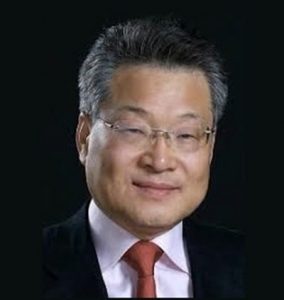As a Korean-American who was born and raised in Korea, and in the decades after my emigration to the U.S. often traveled back to Korea and did business there, my American friends in academia, business, and government often asked for my views on events in Korea and North-South relations. When I offered my observations, many professed to be confused, saying that what I related seemed to be at such great odds with what they were being told by their Korean friends and acquaintances.
In turn I was a little confused. I thought my observations were not at all unusual or unbalanced. Gradually I began to understand why. I noticed that fellow Americans who had spent the most time in Korea, and had the most facility in the Korean language, often saw things more like I did.
Why was that? I realized that the answer was strikingly simple. The conservative side of the political spectrum in Korea was much more articulate in communicating, especially to foreigners, than the progressive side. Because of the conservative side’s access to more wealth and advanced education over generations, often education in the U.S., it could use specialized vocabulary, reference to historical events, and, especially, English, better than the progressive side.
So, even though both the conservative side of the spectrum and the progressive side had important things to say and incisive perspectives, to outside observers like most Americans, the conservative side was the side that was able to articulate its views better, both by being fluent in English and by being able to use specialized political vocabulary.
Although I consider myself conservative by nature – don’t change things unless they need changing – and that’s how I run my business and personal life, I do realize that sometimes the status quo blinds us to seeing opportunities. We must keep ourselves open not only to how things can be better, but how to take concrete steps to make them better. Even if those steps involve controversy, compromise, and hard choices.
I am convinced that there could be a path to a stable peace on the Korean peninsula, and it must involve a process in which the conservative and progressive sides in South Korea take a fundamental first step in which they work out a joint, long-term policy that the country can follow no matter which side of the spectrum controls the presidency or National Assembly.
A policy that is not subject to flip flops every five years when a president is elected or every four when a new National Assembly is seated. West Germany is the model. It adopted its Ost Politik and never deviated from the basic path no matter if conservatives or progressives were in power. And, eventually, it worked.
About ten years ago I and some Koreans who had made the same observations as I had, decided to try to do something about increasing the capability of the progressive side to articulate its perspectives.
The Pacific Century Institute, located in Los Angeles, and which I helped co-found, began to help sponsor a “Korea Peace Academy” which used well-informed experts to teach a targeted audience, mostly from the progressive side, the fundamental facts, history, and terminology of the issues affecting the Korean peninsula. The goal was a simple one, to create a cadre that could articulate better the spectrum of views on how best to address those issues.
Graduates of the Academy have gone on to serve in government positions, in academia, in journalism, etc. It is still going strong. This year it will run from May through November.
I believe it will become even more important in the future than ever. North Korea has declared an end to its interest in unification. It has declared its intention to make nuclear weapons a fundamental part of its national identity. This is taking place within a growing confrontation between the US and China and the collective West and Russia.
How is the Republic of Korea to react, respond, and find its place within new political realities? In my view it had better figure that out. And to do that it needs conservatives willing to think beyond the status quo and progressives able to clearly articulate their views. The Korea Peace Academy is doing its part.

BY SPENCER H. KIM
The author is CEO of CBOL Corp., a California aerospace company. He is a co-founder of the Pacific Century Institute and a member of the US Council on Foreign Relations. He was appointed by President Bush to represent the US on the APEC Business Advisory Council 2006-08. He was a resident fellow at Harvard’s Ash Center for Democratic Governance and Innovation 2012-13.





